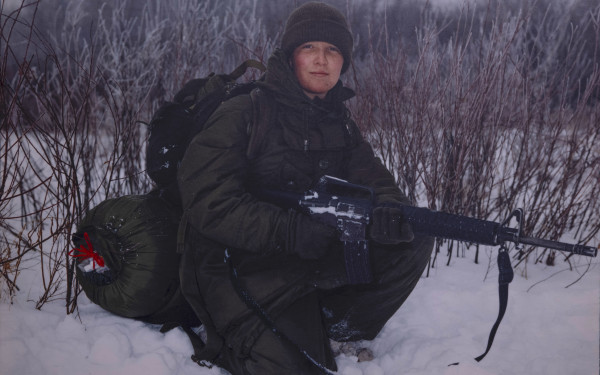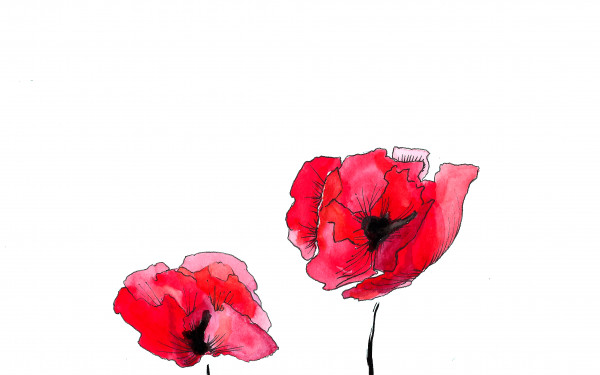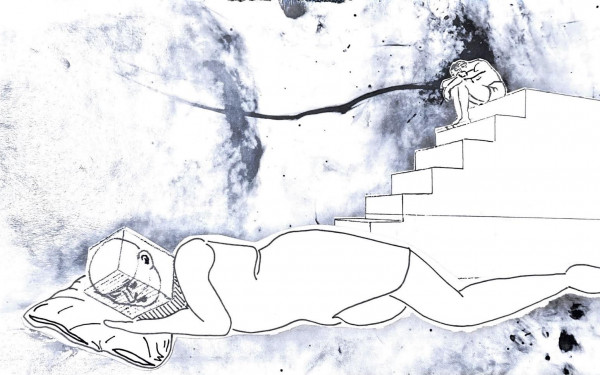Casting Out PTSD
Fly Fishing in the Lachine Canal Helps Veterans Tackle Mental Illness
Benoit Sorel throws his gear into an old army duffle bag, gets on his bike and hits the Lachine Canal’s waterfront bike trail. He surveys Montreal as he outfits himself with waders and water-repellent clothing. He can see flashes of perch below the water awaiting his drifting line. With one motion after the other, Sorel loses himself in the act of fly fishing.
The soothing effect of the water, interrupted only by the adrenaline rush of a hook and the ensuing battle, is one of the things he enjoys most. He was introduced to the recreational activity last July at the Royal Montreal Regiment and at the Lachine Rapids program for Canadian soldiers who have experienced war.
Sorel and two other war veterans have benefited from the fly fishing expertise of Montreal Hemingway Outdoor Life shop owner Anthony Colucci. During a two-day period, Sorel was taught the basics of the sport, in which an artificial fly is used to catch fish. He was trained to swing the lines and master the timing of the fly line arc.
“Fishermen tend to be very open to freely share their knowledge and their methods,” says Colucci. “As a fisherman myself, I am willing to share my art.”
Colucci showed Sorel and his colleagues how easy it is to learn fly fishing, regardless of injury or handicap. To prove it, he covered his eyes and spun in circles. He asked the veterans, who were about 50 feet away from him, to reproduce the sound of the trout. Despite being completely blind and disoriented, he located his target and expertly placed the fly line next to the participants’ feet. He showed that fly fishing is accessible to everyone, even the blind.
Colucci created his prototype program for the Department of National Defence and the Canadian Armed Forces. The project’s purpose is to provide an opportunity for soldiers, like Sorel, to find an enjoyable and liberating hobby. The Montreal fisherman was spurred to action in 2014 when he heard that three Canadian soldiers had committed suicide. He was moved by the personal anguish these people had gone through.
“They gave so much service to the country,” Colucci said. “It’s important to help our Canadian veterans who are depressed, still facing a lot of personal challenges [and] even contemplating suicide.”
The federal government has announced it will provide $200 million over six years to address mental health issues among members of the Canadian Armed Forces. The latest statistics from the National Defence department reveal that the CAF have lost more personnel to suicide than were killed in combat in Afghanistan. It shows 160 personnel members have committed suicide between 2004 and March 31, 2014, compared to the 138 soldiers killed in combat between 2002 and 2014, when Canada’s mission in Afghanistan formally ended.
“You don’t just get up and go to war,” says Sorel. “You get all the training and the final test to do your job. When you hear that first snap, that first bullet going near your ear, you realize that this is not training anymore.” The former master corporal was deployed by the Canadian Forces to Afghanistan twice; once in 2004 and once in 2006, joining a deployment of over 40,000 other soldiers. On the field, he witnessed tragedy and was awoken to the brutal reality of war.
“We lost six soldiers with only one bomb. These deaths brought me an emotional pain that I did not know how to deal with,” he said.
Those who do make it home and return to civilian life risk developing psychological issues from the fighting.
The 2013 Canadian Forces Mental Health Survey found that symptoms consistent with post-traumatic stress disorder were reported by 5.3 per cent of full-time regular force members. 4.7 per cent of the reported symptoms were associated with generalized anxiety disorder and 3.4 per cent were associated with panic disorder.
Sorel’s return home was infused with the issues of the new freedom faced by people coming back from war.
“You get used to always being on your guard when you are on the field,” he said. “Your heart just goes and beats up so fast. When you get back to Canada, your body does not have that constant adrenaline anymore.”
His post-traumatic stress disorder symptoms, which manifested two months before the end of his tour in Kandahar, increased once he was back at home. He denied his mental illness to prevent disturbing his wife and children. Even if he felt stuck with a constant sense of danger and painful memories, no action was taken. In order to move on, Sorel finally decided to face his memories and emotions by getting medical guidance.
American author and Ernest Hemingway’s grandson John Patrick Hemingway, who is in charge of Hemingway Outdoor Life’s public relations, says that the dilemmas of many veterans like Sorel can be found in his grandfather’s short story Big Two-Hearted River. The story follows Nick Adams, who has returned from war, on a fishing trip in northern Michigan, where he realizes that his life will never be innocent and carefree.
During World War I, Ernest Hemingway was wounded by Austrian mortar fire while running a mobile canteen. “As I mentioned to the veterans during the fly fishing activity, fly fishing helped my grandfather to move on,” Hemingway said. “It healed his soul just like it did for Nick Adams.
“In fly fishing, participants don’t need the psychiatrist, nor the psychologist. They are just out there living in the present surrounded by this tremendous natural beauty while taking care of themselves.”
John Patrick Hemingway uses the idiom “Physician, heal thyself” to demonstrate that veterans with mental illness can do an activity such as fly fishing without the help of a doctor. “Once Anthony [Colucci] taught them the basics, the soldiers can fly fish alone,” Hemingway said.
In addition to the support from his family and his therapist, Sorel uses fly fishing to concentrate on the joys of nature—not on occupational problems. The sport itself requires him to focus completely on the fish, the water, the presentation and the natural surroundings. All this helps him to put his days in Afghanistan where they should be—in the past.
“Nature seems to have a very calming and beneficial effect upon the human spirit,” Colucci said. The shop owner believes fly fishing is a great way to deal with some of the insecurity and inner conflicts created by traumatic experiences. He adds that it shelters the individuals from the troubles and worries they’ve been through.
“Fly fishing is one of the ways where one can relax, go out of the house and avoid becoming morose or depressed,” Colucci said.
Sorel is not the first to experience war and will definitely not be the last. Like many other veterans, he has to confront his own inner demons.
“Fly fishing helps me to get my journey somewhere else, to calm down and clean my brain,” says Sorel.

3_900_837_90.jpg)

.WEB_600_375_90_s_c1.jpg)


